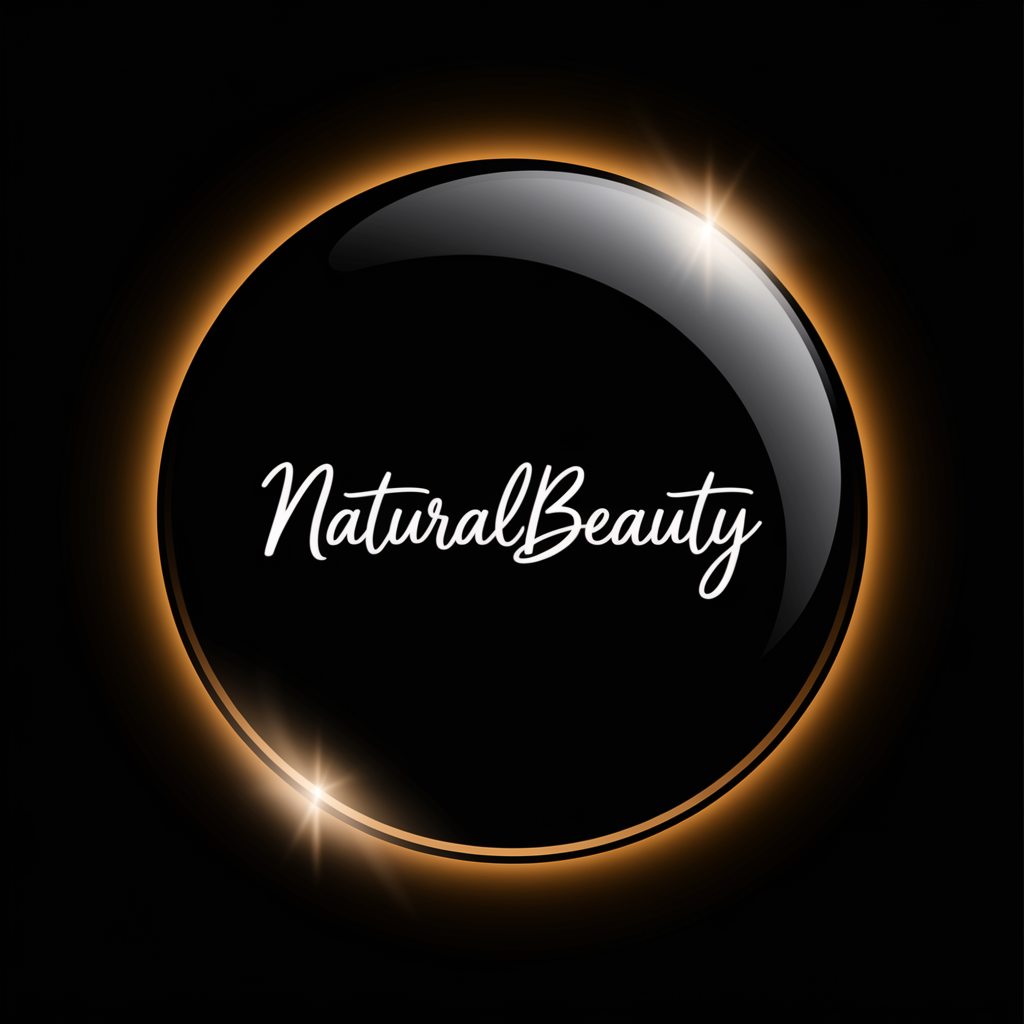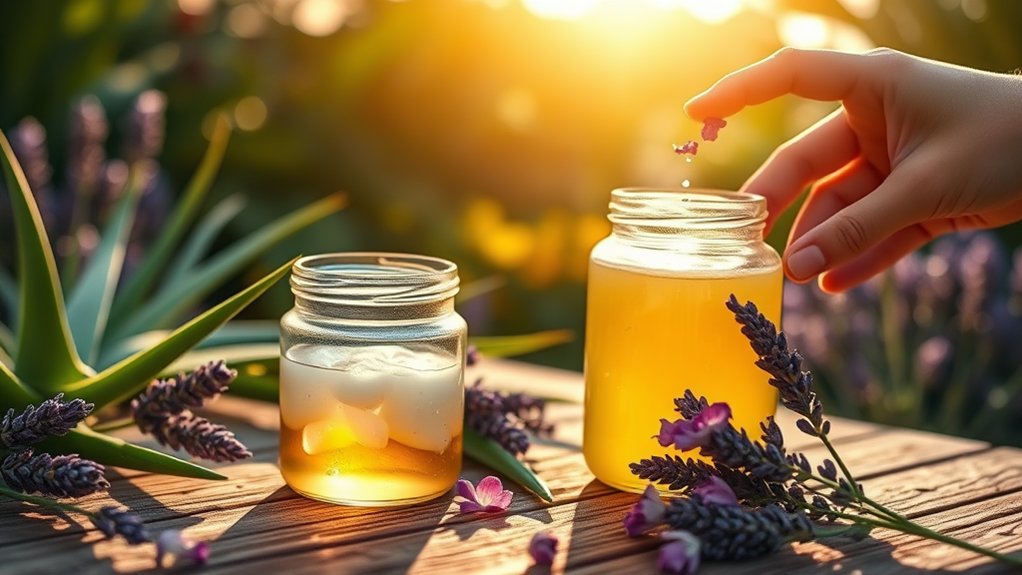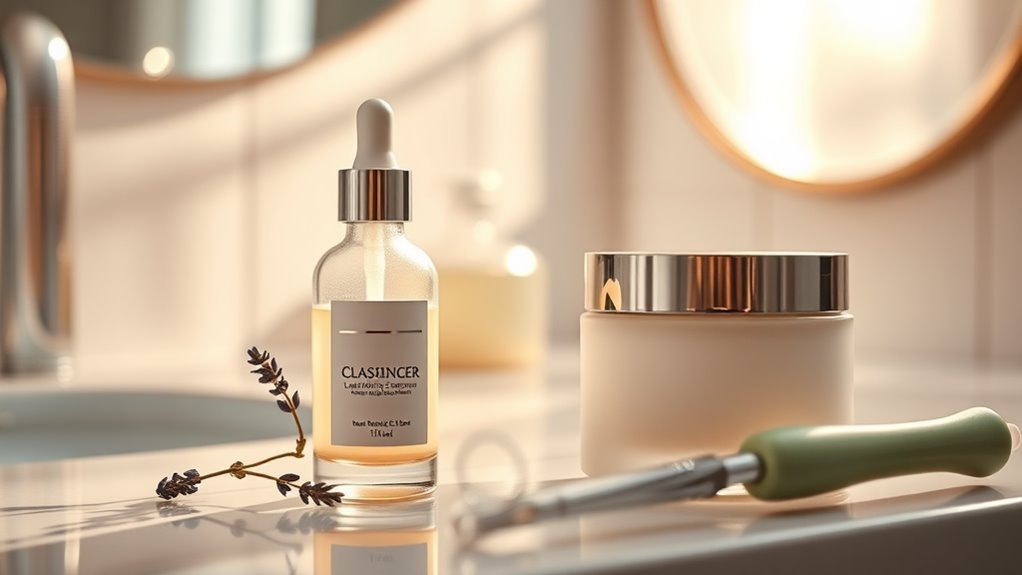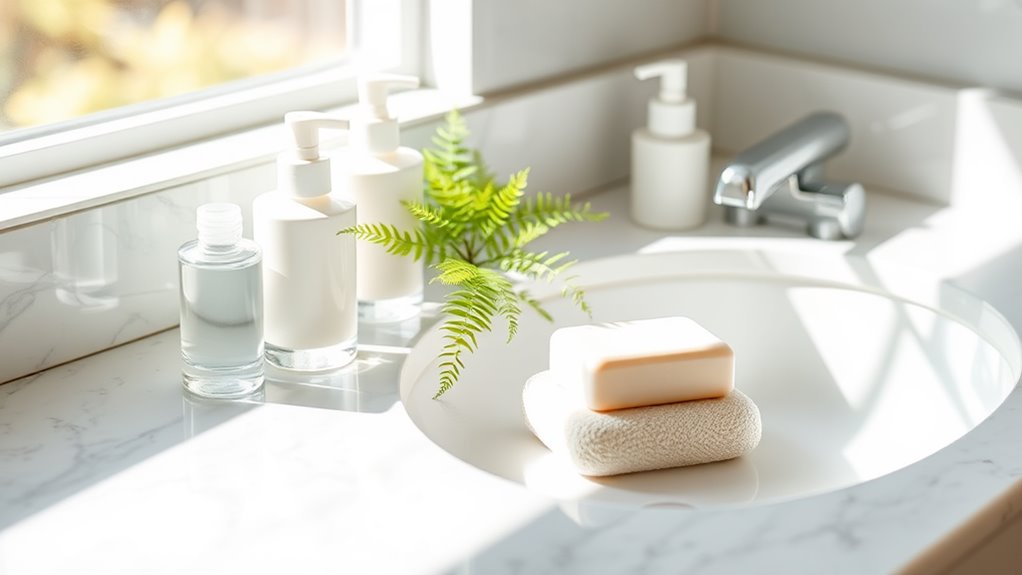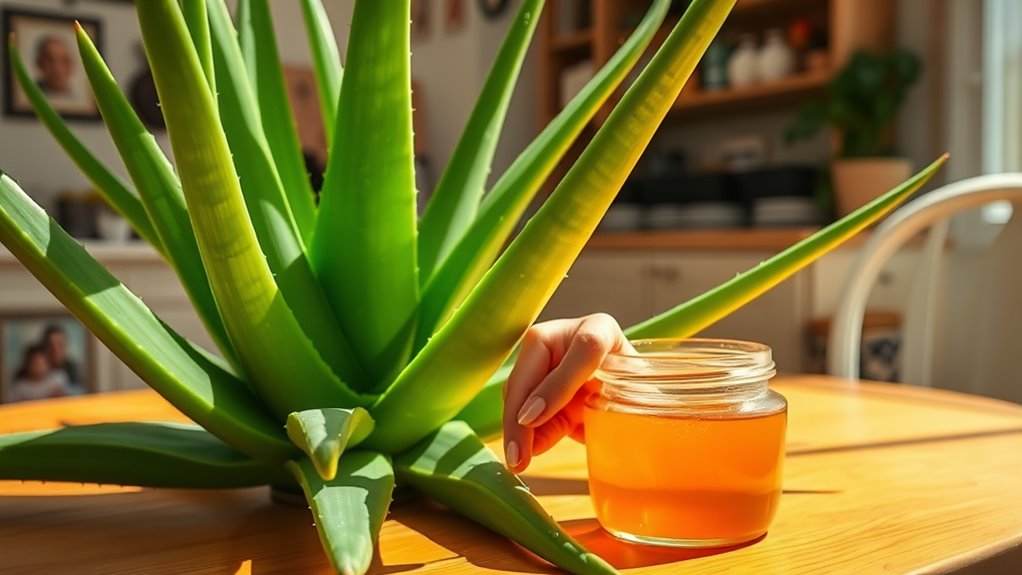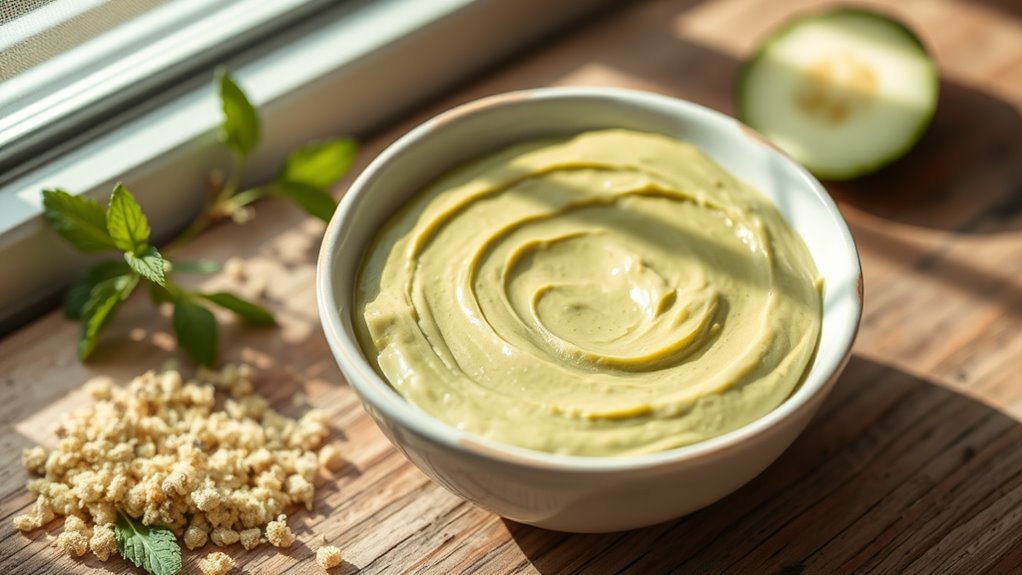How to Naturally Protect Your Skin Year-Round
To naturally protect your skin year-round, it’s essential to adopt a comprehensive approach. Establish a moisturizing routine suitable for your skin type, incorporating natural ingredients like aloe vera. You’ll also need to consider the role of antioxidants, such as vitamins C and E, in fortifying your skin against environmental stressors. Understanding your skin’s needs, especially as seasons change, can make a significant difference. Let’s explore how these elements work together for optimal skin health.
Embrace a Natural Moisturizing Routine
To maintain healthy skin throughout the year, you should establish a natural moisturizing routine that suits your skin type. This routine supports year-round natural skin protection by replenishing moisture and enhancing the skin barrier function.
Choose products containing ingredients like aloe vera, shea butter, or jojoba oil, which offer optimal hydration without synthetic additives. Apply moisturizer immediately after cleansing to lock in moisture, ensuring your skin remains supple and resilient against environmental stressors. Natural ways to hydrate skin can also be incorporated through lifestyle and dietary choices that promote moisture retention.
Adjust your routine with seasonal changes, as humidity and temperature fluctuations can affect your skin’s needs. Prioritizing hydration is key to long-term skin health and protection.
Incorporate Protective Antioxidants
While your moisturizer hydrates your skin, incorporating protective antioxidants can significantly enhance its resilience against environmental damage.
Antioxidants, such as vitamins C and E, help neutralize free radicals that contribute to premature aging and skin irritation. Adding serums containing these compounds to your skincare routine can improve your skin’s texture and tone.
Additionally, green tea extract and coenzyme Q10 are effective options that boost your skin’s defenses. Consistently using products rich in antioxidants can create a protective barrier, improving overall skin health. Furthermore, maintaining optimal hydration levels is crucial for maximizing the benefits of these antioxidant-rich products.
Adjust Your Diet for Skin Vitality
Adjusting your diet can play a crucial role in achieving skin vitality, as the foods you consume directly influence your skin’s health and appearance.
Incorporate foods rich in antioxidants, vitamins A, C, and E, and omega-3 fatty acids to enhance skin elasticity and hydration. Leafy greens, nuts, seeds, and fatty fish provide essential nutrients that combat inflammation and oxidative stress.
Staying hydrated is vital, so prioritize water intake alongside fruits like watermelon and cucumber. Incorporating everyday foods like avocados and berries can provide additional skin benefits. Limiting sugar and processed foods can reduce breakouts and improve your overall complexion.
A balanced, nutritious diet is the foundation for achieving radiant and healthy skin.
Seasonal Skin Care Tips
As the seasons change, so do the demands of your skin, necessitating adjustments in your skincare routine to maintain its health and appearance.
In winter, opt for thicker moisturizers to combat dryness from cold air.
Spring is a great time to incorporate exfoliation to remove dead skin cells and promote cell turnover.
During summer, use lightweight, non-comedogenic products and don’t forget sunscreen to shield against UV damage.
Fall calls for a gentle transition; consider nourishing serums to repair summer wear and prepare your skin for the upcoming winter.
Additionally, incorporating natural ingredients into your skincare routine can enhance your skin’s resilience throughout the year.
Tailoring your regimen seasonally will optimize your skin’s resilience year-round.
Hydration and Its Impact on Skin Health
How does hydration influence skin health? Proper hydration helps maintain skin elasticity, suppleness, and barrier function. When your skin is adequately hydrated, it can effectively protect against environmental stressors. Conversely, dehydration leads to dryness and may accelerate aging. Additionally, incorporating simple habits like carrying a water bottle can serve as a reminder to keep your hydration levels up throughout the day.
| Signs of Dehydrated Skin | Consequences | Solutions |
|---|---|---|
| Tightness | Increased wrinkles | Drink more water |
| Flakiness | Dull complexion | Use hydrating serums |
| Redness | Skin irritation | Apply moisturizers |
| Itchiness | Discomfort | Consider humidifiers |
| Early aging signs | Reduced elasticity | Eat water-rich foods |
Stay hydrated for vibrant skin!
